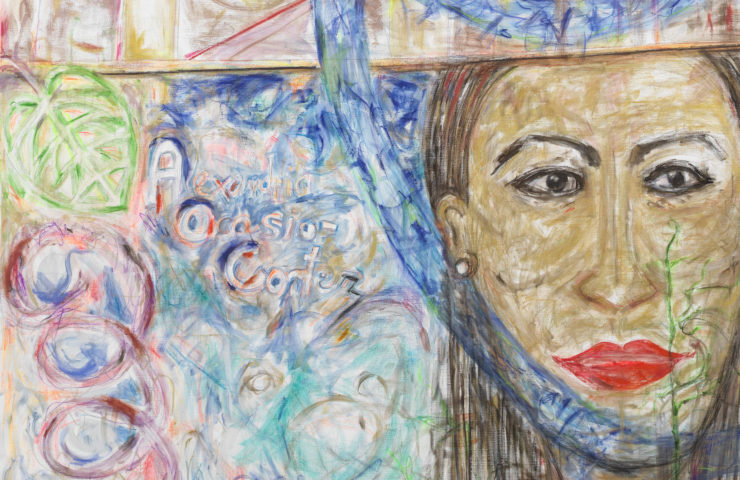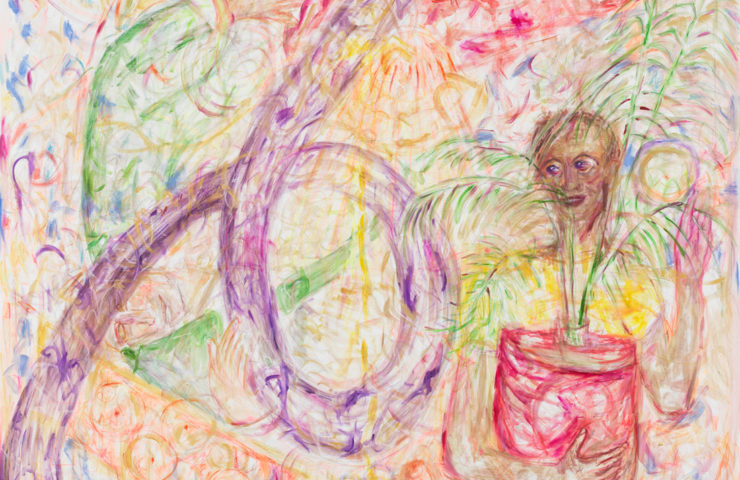Max Ernst
1983
Oil on canvas
11 13/16 x 9 7/16 inches (30 x 24 cm)
© Jutta Koether
Courtesy Lévy Gorvy and Galerie Buchholz
Max Ernst (1983) dates to Koether’s early years in Cologne. Intimately sized, like ritual objects or fetishes, her paintings of the 1980s bear witness to her search for alternatives to both standard narratives of modernism and then-dominant models of neo-expressionism. Seeking other ways to be, and to be as an artist, she looked to esoteric and dissident modes, like Surrealism, the landscape paintings of Georgia O’Keeffe, and the late work of Philip Guston, “sipping” them, so to speak—as the title of two paintings in the exhibition, Some Esoteric Sipping (1986), proposes. Named after the pioneering Dada and Surrealist artist, the present painting depicts a pyramid adorned with two ocular forms. These symbols, pervasive within occult traditions from ancient Christianity to Freemasonry, invoke a myriad of meanings, infusing the composition with a sense of mystery and irresolution. Its brushy impasto and red-and-black palette—typical of Koether’s work from this period—emphasize the materiality of paint, here presented as a metaphor for the body. Dense and deliberately crude, its surface effects a sense of spatial compression—one that would relent in the mid-to-late 1980s through lighter, more liquid applications of paint. Held between abstraction and figuration, Max Ernst transforms the canvas into a suggestive, corporeal terrain.
-

Neue Frau
2019
-

Untitled
1987
-

Max Ernst
1983
-

Untitled
1983
-

Croisset
1985
-

Untitled
1984
-

Untitled
1983
-

Systems rattle – excellent is bloom…
1986
-

100% (Portrait Robert Johnson)
1990
-

Neuer Mann
2019
-

Some Esoteric Sipping
1986
-

Jane Bowles
1983
-

Untitled
1983
-

Some Esoteric Sipping
1986
-

Holding 5
2019


